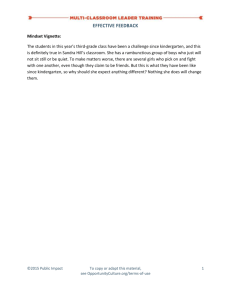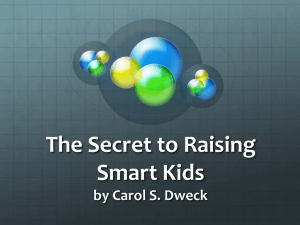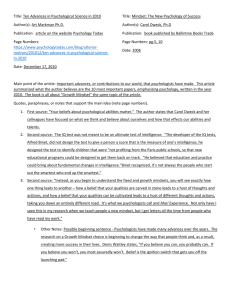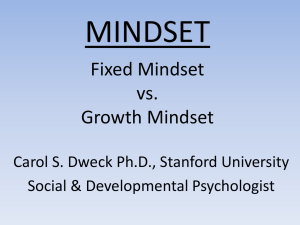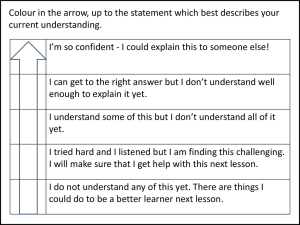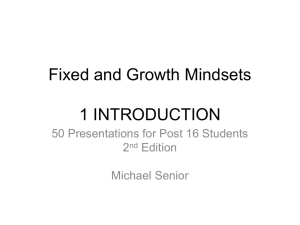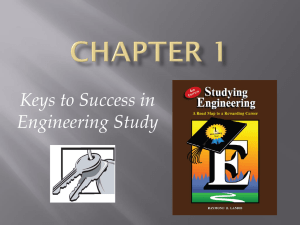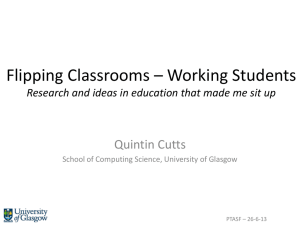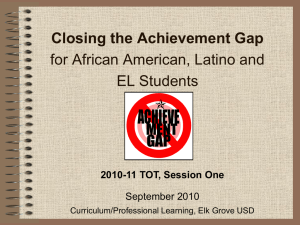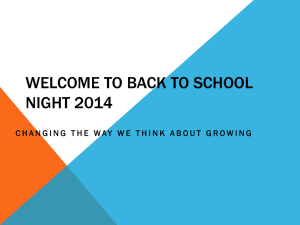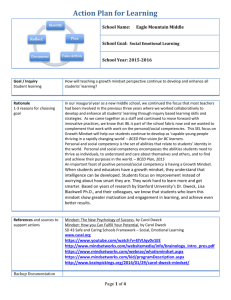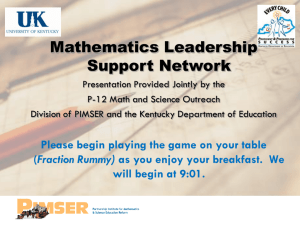1. Impact of Mindsets
advertisement
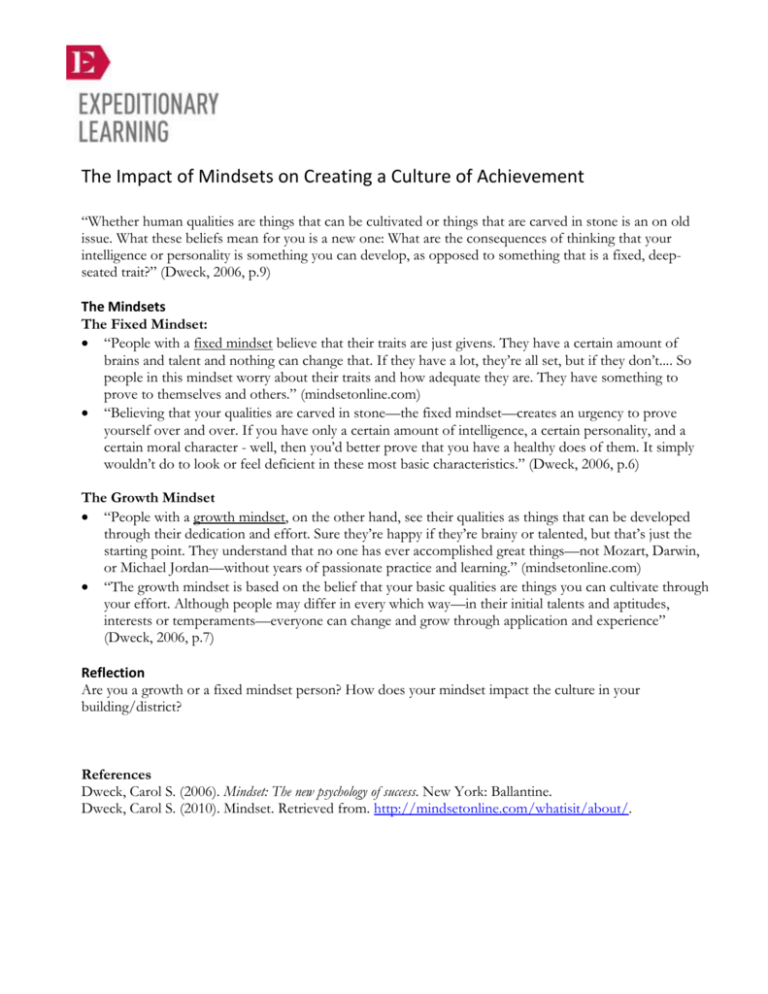
The Impact of Mindsets on Creating a Culture of Achievement “Whether human qualities are things that can be cultivated or things that are carved in stone is an on old issue. What these beliefs mean for you is a new one: What are the consequences of thinking that your intelligence or personality is something you can develop, as opposed to something that is a fixed, deepseated trait?” (Dweck, 2006, p.9) The Mindsets The Fixed Mindset: “People with a fixed mindset believe that their traits are just givens. They have a certain amount of brains and talent and nothing can change that. If they have a lot, they’re all set, but if they don’t.... So people in this mindset worry about their traits and how adequate they are. They have something to prove to themselves and others.” (mindsetonline.com) “Believing that your qualities are carved in stone—the fixed mindset—creates an urgency to prove yourself over and over. If you have only a certain amount of intelligence, a certain personality, and a certain moral character - well, then you’d better prove that you have a healthy does of them. It simply wouldn’t do to look or feel deficient in these most basic characteristics.” (Dweck, 2006, p.6) The Growth Mindset “People with a growth mindset, on the other hand, see their qualities as things that can be developed through their dedication and effort. Sure they’re happy if they’re brainy or talented, but that’s just the starting point. They understand that no one has ever accomplished great things—not Mozart, Darwin, or Michael Jordan—without years of passionate practice and learning.” (mindsetonline.com) “The growth mindset is based on the belief that your basic qualities are things you can cultivate through your effort. Although people may differ in every which way—in their initial talents and aptitudes, interests or temperaments—everyone can change and grow through application and experience” (Dweck, 2006, p.7) Reflection Are you a growth or a fixed mindset person? How does your mindset impact the culture in your building/district? References Dweck, Carol S. (2006). Mindset: The new psychology of success. New York: Ballantine. Dweck, Carol S. (2010). Mindset. Retrieved from. http://mindsetonline.com/whatisit/about/.
